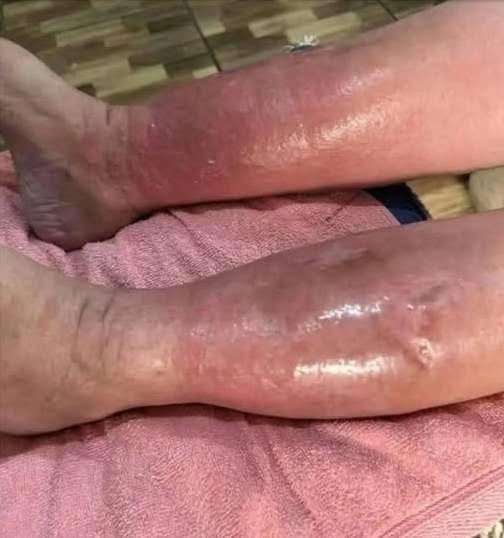We rarely give our feet much thought—until something doesn’t feel quite right. But signs like puffiness, soreness, or unusual skin tone can be early warnings of more than just a tiring day.

Occasional foot swelling is often harmless, caused by things like standing for extended periods or indulging in a salty meal. But if the swelling becomes frequent or uncomfortable, it may be signaling a deeper issue. Health professionals often say that your feet can reflect what’s happening elsewhere in the body.
If both feet are consistently swollen—especially if it gets worse later in the day—it could suggest circulation problems. Underlying conditions such as heart issues, diabetes, or poor vein function (venous insufficiency) can all contribute to fluid retention in the lower legs. This buildup might cause the feet and ankles to feel tight or appear bloated, and over time, it may affect the skin as well.
Problems involving the kidneys, liver, or lymphatic system can also result in a condition known as edema—when fluid collects in the body’s tissues. If you press on the swollen area and it leaves an indent, it might be what doctors refer to as “pitting edema,” which should be evaluated by a healthcare provider.
Another common but often unnoticed culprit is chronic venous insufficiency—where leg veins have trouble pushing blood back up toward the heart. This can cause recurring swelling, skin changes, and a heavy sensation in the legs.
Keep in mind: if swelling is only happening in one foot or leg, it could point to something more localized, like a deep vein thrombosis (blood clot). This kind of swelling is usually accompanied by heat, redness, or pain and needs urgent medical attention.
Swelling can also stem from conditions like arthritis, physical injury, infections, or side effects from certain medications. And occasionally, it’s something simple—like wearing shoes that don’t fit properly or being stuck in the same position for a long flight.
The bottom line? If you notice that your feet are regularly or suddenly swollen for no clear reason, it’s a good idea to speak with a doctor. Even if it turns out to be nothing serious, identifying the cause can help you feel better and avoid future discomfort.
Checking in with your body—especially your feet—can be a small but powerful way to stay on top of your health. It’s not about panic, but about being proactive. Your feet carry you through every day—sometimes, they’re just trying to tell you to pause, pay attention, and care for yourself.
If this article helped you, consider sharing it with a friend or loved one. A small reminder can sometimes lead to a big step forward in health.




